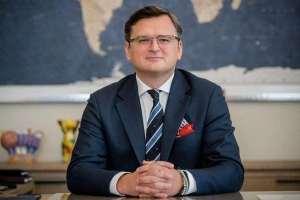
C. Rabbinic democracy
A "metahalakhic" debate (a more theoretical and analytical approach to the source of the authority of Jewish law, the relationship between the sacred texts and their application in practice), unparalleled in the Talmud, is found in Bava Metzia 59b, to which many studies have been devoted good intellectual attitude (1).
Annex 1 reproduces the debate; its reading is necessary for a better understanding of the exposition that follows, but in summary the fragment reports that, exhausting the logical argumentation in favor of the interpretation he supported, Rabbi Eliezer appealed to divine support, asking for miracles to take place that would prove the correspondence between his opinion and God's intention.
Although the miracles requested by Eliezer occurred in each case, immediately, the rabbis continued to not accept his opinion, rejecting the nature of miracles as unfit for an argument of interpretation of the Law.
Finally, a Divine Voice was heard confirming Eliezer's righteousness.
However, Rabbi Yehoshua also rejected the words of the Divine Voice, claiming that the Torah is no longer based on divine interventions since its handing down on Mount Sinai and invoked in support of this opinion the verse that refers to the Law ("commandment") in Deuteronomy:30 :12, which he quoted in part: "She is not in heaven."
In addition, at the Gemara's explanatory request, Rabbi Yirmeyah quoted the verse from Exodus 23:2, in the form "After many, bow down", as an argument according to which the decision in the matter of controversies regarding the interpretation of the text of the Law follows the rule of the majority.
Finally, the prophet Elijah who never died, but was taken to heaven alive, reported that the dispute aroused the smile of God, who said twice: "My children have triumphed over me."
The Jewish religious authority operates on the basis of the teachings of the Talmud, so that, after seeking consensus in the interpretation of the law, the majority rule in the decision-making process, presented (among others) by Bava Metzia 59b, has exerted a significant influence, (although there are variations in the decision-making methods of various rabbinic authorities throughout history and in the present).
The interpretation of the Torah, which tradition stated was received by Moses on Mount Sinai, diminished its authority, leaving the rabbis free to debate and participate in the decision, even on the assumption that the human outcome would be contrary to God's intentions.
This can be considered as a victory for man and his emancipation, if it were not, in reality, the result of the prevalence of the Greek and Roman system (familiar, in the eras of democracy, with citizen participation in decision-making) over traditional Judaism and over God the people of Israel.
It is, in fact, a political defeat of Judaism.
But not doctrinal either: the logic used by the victors is vicious, (although of Greek inspiration).
Notes
Although sometimes at odds, the text that inspired this part of the essay is "Elu v'Elu: Two Schools of Halakha Face Off On Issues of Human Autonomy, Majority Rule And Divine Voice of Authority"/Noam Zion/2008 Shalom Hartman Institutes/ Jerusalem Israel. Of course, the Babylonian Talmud and supporting exegesis are part of the bibliography.
Appendix 1
About the text:
Since Bava Metzia 59b relates the performance of miracles on request, this fragment of the Babylonian Talmud (TB), which is in the form of a play, belongs to surrealism. The Bava Metzia ("Middle Gate") is the second of a series of three treatises in Seder Nezikin ("The Order of Damages") dealing with civil laws. It focuses primarily on non-tort interpersonal issues such as property litigation, usury, return of lost property, custody, lease, loan, and workers' and employers' responsibilities. Composer: Talmudic Babylon (c.450 - c.550 CE)
According to some opinions, the debate related below took place after the destruction of the Second Temple, but if it was historical fact, then it was obviously heavily literary. As a play, it is appropriate that, before the reproduction of the fragment from TB Bava Metzia 59b, the characters who animate it are presented, specifying that they are historically documented.
Characters, in order of appearance:
1. Eliezer ben Hyrcanus: Tannaim - third generation; one of the most prominent sages (tannaim) of the 1st and 2nd centuries in Judea (supposed date of birth is in the decades before the destruction of the Temple in 70 CE; died about 110 CE) He was considered to be the most brilliant disciple of Rabban Yohanan ben Zakkai (this, in turn, was the first Jewish sage called a rabbi in the Mishna). R. Eliezer b. Hyrcanus was, however, a controversial figure. A follower of Beit Shammai, very conservative in his approach to the Torah, he was isolated and finally excommunicated (herem) by his colleagues. Eliezer ben Hyrcanus is said to have been a colleague and brother-in-law of Gamaliel II (nephew of Hillel Gamaliel), being married to his sister, Ima Shalom, which contradicts the information in Encyclopedia Judaica, according to which Beit Hillel and Beit Shamai had suspended marriages leading to kinship between representatives of the two schools. Encyclopedia Judaica notes that Graetz identified him with Eleazar son of Hananiah mentioned by Flavius Josephus as the leader of the Zealots in the rebellion against Rome, but his view was not widely accepted. If what Graetz claims turns out to be true, then the dispute in Bava Metzia 59b would acquire political significance.
2. Yehoshua ben Hananyah: Tannaim - Third generation; colleague of Eliezer ben Hyrcanus, considered second after him, among Yochanan ben Zakkai's students. He established an academy in Peki'in and became the rival of Rabbi Eliezer. His independence also brought him into conflict with the authority of Rabban Gamaliel (II), to whom he finally submitted. Having done this, he became the most influential scholar of his time.
3. The Divine Voice: Bat Kol (in Hebrew lit. "daughter of a voice"), that is, the echo of a heavenly voice that reveals God's will, choice or judgment to man.
4. Yirmeyah: Amoraim - third and fourth generation (c.290 - c.350 CE) A student of R. Abuha and colleague of R. Zera, R. Yirmeyah was known for his humility as well as his demanding and strange questions . Eventually it got to the point where he was kicked out of the academy.
5. Rabbi Natan [haBavli]: Tannaim - fifth generation (c.135 - c.170 CE); Babylonian scholar with great respect for the Land of Israel. When he moved there, he was chosen as head of the court under R. Shimon ben Gamliel - an office he also held under R. Yehuda HaNasi. He was a prolific and insightful scholar and is well known as the author of Pirkei D'R. Natan, an ethical and homiletical treatise loosely based on Pirkei Avot.
6. Elijah/Eliyahu was a prophet in the Book of Kings who advocated the worship of God during the reign of King Ahab, a time when many were turning to the Canaanite god Ba'al. He performed miracles to prove God's superiority. Eliyahu never died, but was taken to heaven in a fiery chariot.
7. God.
(Information from Encyclopedia Judaica, other encyclopedias, Wikipedia and Sefaria)
TB Bava Metzia 59b (Translation):
"That day, when they discussed this matter, Rabbi Eliezer responded with all the possible explanations in the world to support his opinion, but the rabbis did not accept his explanations.
אמר להם אמן הלאקא קמותי חרוב זה יקוין נעקר חרוב ממקומו מאה אמה אמרו לה ארב מאות אמה אמרו לו אין מיאיאין ראיה מן חרוב אמר להם אמן הלאקא כמותי אמת המים יכוישו ככרו אמת המים לאחוריהם אמרו לו ין ין מיאיאין ראיה מאמת המים
Failing to convince the rabbis logically, Rabbi Eliezer told them: If the halakha is in accordance with my opinion, this carob will prove it. The carob tree was uprooted from its place at a distance of a hundred cubits, and some say four hundred cubits. The rabbis told him: There is no halakhic proof from the carob tree. Rabbi Eliezer then said to them: If the halakha is in accordance with my opinion, the stream will prove it. The water in the stream turned back and began to flow in the opposite direction. They said to him: No halakhic proof is brought from a stream.
He repeated and said to them, "If the law is like the walls of the house of God, then the law will not fall on them."
Rabbi Eliezer then said to them: If the halakha is in accordance with my opinion, the walls of the study school will prove it. The walls of the study school buckled inward and began to fall. Rabbi Yehoshua rebuked the walls and said to them: If the scholars of the scholars contradict each other in matters of halakha, what is the nature of your involvement in this dispute?
The Gemara reports: The walls did not fall because of the respect due to Rabbi Yehoshua, but they did not straighten because of the respect due to Rabbi Eliezer, and they are still leaning.
he repeated and said to them אמן הלאקא קומותי מן השמים יכוחיו אחדתה ב קול ואמרה מה לכם אצל ר"א שהלאקא קומותו בק"מ
Rabbi Eliezer then said to them: If the halakha is in accordance with my opinion, Heaven will prove it. A Divine Voice came from Heaven and said: Why do you contradict Rabbi Eliezer, when the halakha is in accordance with his opinion in every respect in which he expresses an opinion?
עמד רבי יהושע על רגליו אמר (דברים ל, יב) לא בשמים היא מאי לא עשמיש היא אמר רבי ירמיה עשעשע עשר שיני אין אנו משגיחין בבת קול עשעבת בהר סיני טורה (שמות כג, ב) א"ל מאי עביד קוב"ה בההיא שעתא א"ל קא החים אמר נצחוני בני נצחוני בני
Rabbi Yehoshua stood up and said: It is written: "It is not in heaven" (Deuteronomy 30:12). The Gemara asks: What is the relevance of the phrase "It is not in heaven" in this context? Rabbi Yirmeya says: Since the Torah was already given at Mount Sinai, we do not consider a divine voice, as it was already written at Mount Sinai in the Torah: "After many you shall bow down" (Exodus 23:2). Since the majority of the rabbis disagreed with Rabbi Eliezer's opinion, the halakha is not established according to his opinion. The Gemara reports: Years later, Rabbi Natan met with the prophet Elijah and said to him: What did the Most High do at that time when Rabbi Yehoshua made his declaration? Elijah said to him: The Most High smiled and said: My children have triumphed over me; My children have triumphed over Me"















































